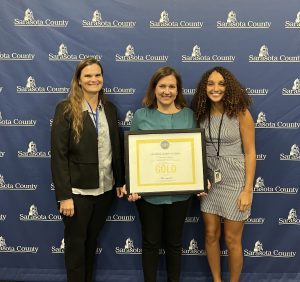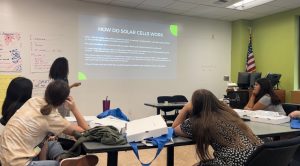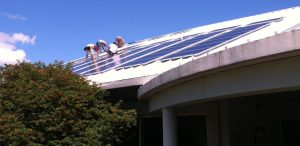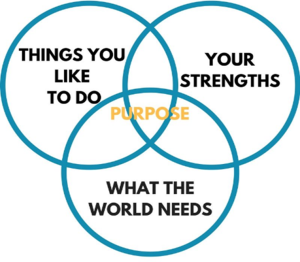Some of my earliest and best memories are tied to the outdoors—kayaking, camping, fishing, and catching fireflies. These experiences fostered a deep connection to nature and respect for the environment, inspiring me to pursue a career in environmental sustainability. I earned degrees in environmental politics from FAU and global sustainability from USF, completing internships focused on conservation and sea level rise with Harbor Branch Oceanographic Institute and Turn the Tide for Tarpon. As I was about to graduate with my master’s degree, I realized just how vast the sustainability field is and began to explore which sector might be the most fulfilling for me. If you’re at a similar crossroads, wondering about the possibilities this field offers, read on to discover diverse career paths in sustainability and gain career advice from a professional in the field.

Sustainability Science
Sustainability science is a dynamic, problem-focused field that explores the interactions between natural and social systems to address pressing global challenges. It spans areas like climate change research, water conservation and quality, wetland restoration, and energy innovation through engineering technology, alternative energy, and green building. By integrating economic considerations and leveraging innovative technologies, sustainability science develops practical solutions that promote environmental stewardship and social equity. This field offers diverse career opportunities for those passionate about creating a sustainable future.

Government Sustainability
For me, working in local government sustainability has been both rewarding and impactful. Sustainability roles in government, such as Sustainability Director, Manager, Coordinator, or Resiliency/Climate Change Officer, focus on developing and implementing policies and programs that enhance community resilience and reduce environmental impact. These positions often involve creating climate action plans, managing renewable energy initiatives, promoting sustainable development, and ensuring compliance with environmental regulations. Professionals in these roles collaborate with local, state, and federal agencies, as well as community stakeholders, to address challenges like climate change, resource conservation, and disaster preparedness, making these careers essential for driving sustainable progress.
Nonprofit Sustainability
Non-profit sustainability professionals play a vital role in advancing environmental justice, conservation, and community-driven solutions. These roles often involve advocacy, education, and program development to address issues like climate change, habitat restoration, renewable energy adoption, and resource conservation. Professionals in this field work with communities, policymakers, and other organizations to raise awareness and implement sustainable practices.
Private Sector Sustainability
Private sector sustainability careers focus on integrating environmental responsibility with business operations and innovation. Roles like Corporate Sustainability Officer involve creating and overseeing strategies to reduce a company’s carbon footprint, improve energy efficiency, and promote ethical sourcing. Professionals in energy sectors, such as green building and solar, work on cutting-edge technologies to drive renewable energy adoption and sustainable construction practices. Architects and engineers contribute by designing eco-friendly infrastructure and advancing sustainable development. Sustainability consultants support organizations across industries by providing expertise in reducing environmental impact and meeting sustainability goals, making the private sector a dynamic space.
Sustainability Education

Technical Sustainability

Fast Growing Jobs and Fields
The sustainability sector is experiencing rapid growth across a wide range of careers. Opportunities are expanding in renewable energy as system designers, installers, developers, and project managers. Roles like sustainability officers, recycling coordinators, and educators are increasingly in demand, along with positions in architecture, construction management, and city planning. Fast-growing fields also include sustainable transportation, green building, energy efficiency analysis, and climate change specialization. From agriculture and utilities to research and sales, sustainability careers are diverse and dynamic, offering paths to innovate, lead, and drive environmental and economic progress.
Career Advice
 To build a successful career in sustainability, start by getting involved through volunteering, internships, or part-time jobs to gain hands-on experience. Focus on discovering what you’re passionate about and pursue it, while recognizing that your interests and expertise may evolve over time—and that’s okay. Networking is essential; connect with professionals who can guide you and open doors to future opportunities. Develop strong communication skills, including public speaking, and gain experience in outreach and education, as these are valuable in any role. Being detail-oriented, responsive, and skilled in office environments will set you apart, while staying genuine and kind will foster positive relationships and long-term success.
To build a successful career in sustainability, start by getting involved through volunteering, internships, or part-time jobs to gain hands-on experience. Focus on discovering what you’re passionate about and pursue it, while recognizing that your interests and expertise may evolve over time—and that’s okay. Networking is essential; connect with professionals who can guide you and open doors to future opportunities. Develop strong communication skills, including public speaking, and gain experience in outreach and education, as these are valuable in any role. Being detail-oriented, responsive, and skilled in office environments will set you apart, while staying genuine and kind will foster positive relationships and long-term success.
Finding your passion is an exciting journey, and every step brings you closer to discovering what truly fulfills you. Stay curious, embrace new experiences, and trust that your unique path will unfold in time. Best of luck as you explore and follow what inspires you!
Resources
- Sarasota County Career, Internship, and Volunteer Opportunities
- University of Florida Careers
- University of Florida Career Tips and Buzz
- Six Ways to Take That Next Step UF Blog
- Sarasota County Sustainability
- UF/IFAS Sarasota County Classes and Events
 4
4

